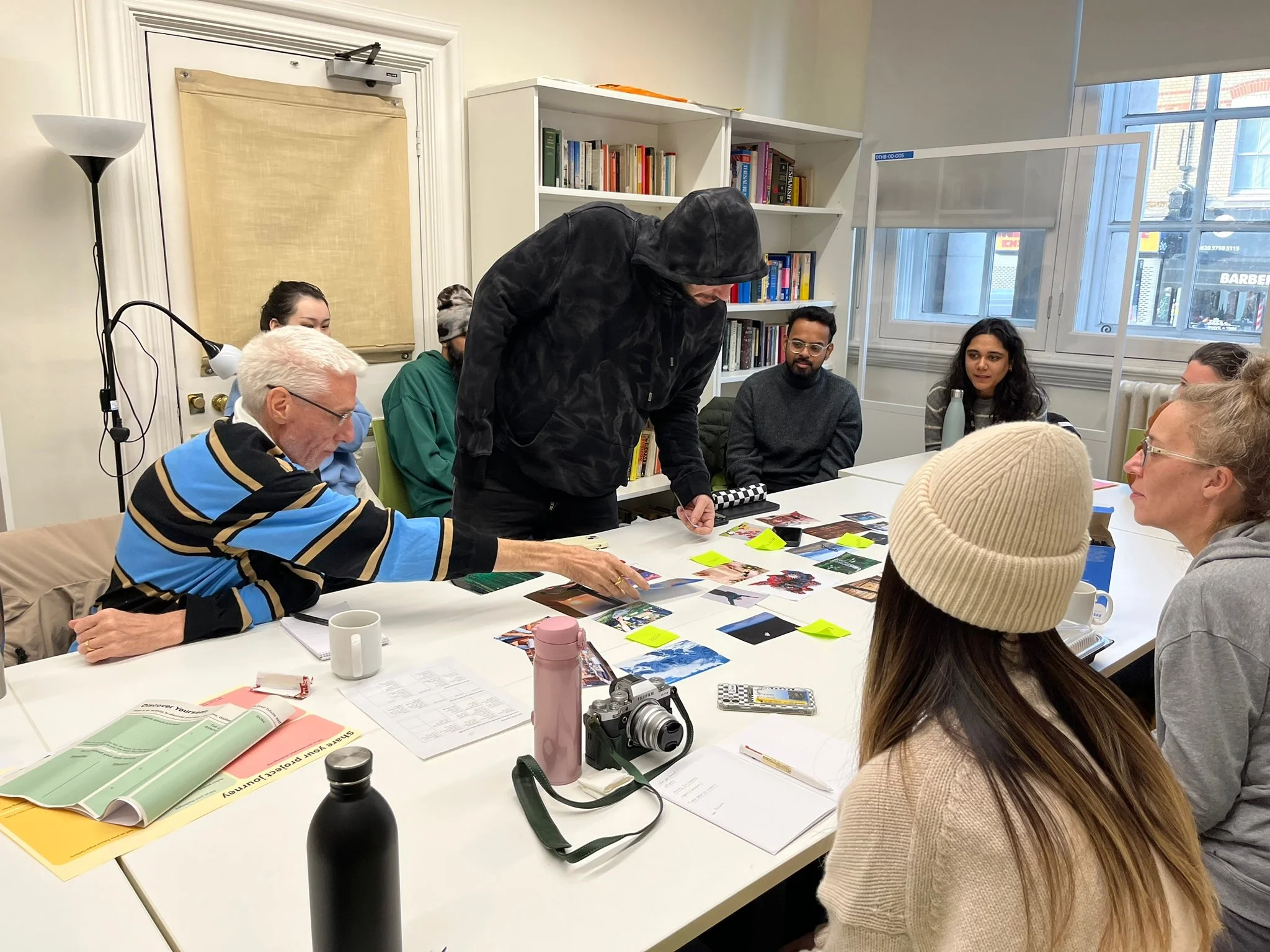
EPQ Learning Journey
November 2022 -February 2023, London, UK
Project Background
Collaboration
December 2022 - February 2023, London UK
This is group project collaborated with Open Book under Goldsmiths, on lack of social action initiated by Camden, which aimed to address the challenges faced by EPQ learners in acquiring their qualification and also address how the current EPQ curriculum can be made more design focused.
EPQ (Extended Project Qualification) is a A-level standard standalone qualification designed to extend and develop students' abilities beyond the A-level syllabus and prepare for university or their future career.
Most of the students in the EPQ curriculum are not linear learners.
My Role:
Desktop Research
Ideation
Conduct the workshop
Design the workshop material
Data Analysis
Editorial and layout design (Delivery)
Problem
Current Pain Points for the leaners in the EPQ curriculum:
A need for learners to explore their topics (Find Interests).
A need for the overview of the learning progress.
A need for the evidence documenting of the learning process.
A need for the guidance of the studying/research skills.
An opportunity for the successful story sharing
Solution
We concentrate on three key areas throughout the entire learning journey.
Firstly, we prioritize identifying their goals and interests, which we define as the curriculum. After that, we emphasize evidencing the learning process and supporting the research process, which occurs concurrently with the curriculum.
Research
Through desktop research and interviews with stakeholders in EPQ, we employed design thinking tools such as double diamonds, user journeys, and service blueprints to analyze the EPQ learners' journey. This approach not only serves as a research method but also demonstrates how to adapt the value of these tools to research in a new area.
Workshop with Stakeholders
To better understand the fields of teaching and students’ learning journey.
We participated in anthropology drop in sessions. We found
that learners in Open Book are all passionate and knowledgeable in this area. They study much about related topics without any forcement, being able to rattle off and all have their own viewpoints on issues.
The overall objective of the workshop was to use these tools as a way to get to know the learners, understand their perspective, and create a supportive environment for EPQ learning.
Workshop 01 - Ice Breaker
We learnt that Open Book is a platform which is discussion oriented and places a strong emphasis on collaborative learning. Hence we designed a photo story workshop which helped us learn more about the learners and relevant user groups.
Workshop: 02 Understand their EPQ Journey
In addition to the workshop in the drop-in session, we conducted a workshop using photograph reflection tool to facilitate discussion and encourage learners to speak up and share their backgrounds, challenges, and motivations related to the EPQ journey. The photograph reflection tool provided an opportunity to reflect on meaningful moments and experiences in their lives, and also shape their personal experiences and perspectives on their goals indirectly.
Workshop: 03 Discover Yourself
Throughout the workshop, participants were encouraged to actively listen and engage with one another, fostering a supportive and inclusive environment for learning. The use of these tools helped to ice break and create a space where learners felt comfortable sharing their thoughts and experiences.
Define
Stakeholder
Open Book partners with government institutions and universities to reach EPQ learners. There are two types of learners at Open Book: general learners and non-linear learners. General learners are typically local individuals or those who have heard of Open Book through word of mouth. Non-linear learners, on the other hand, have often encountered obstacles that discourage them from pursuing higher education. Open Book provides a supportive and inclusive environment for these learners to gain knowledge and earn degrees.
User Voice
According to feedback from our users, the project identifies their needs, aligning with the learning journey, personas, as well as key insights and observations. Many learners struggle within traditional linear educational environments; they lack confidence in academic writing and reading, encounter difficulties with technology use, and face challenges in tracking their progress throughout the learning journey.
Painpoints in the Current EPQ Learning Journey
Persona
Key Insights & Observations
How might we intervene in the current EPQ journey with design thinking tools to make the learning experience more design focused?
Deliver
Interest Finding / Self Reflection
The pre curriculum tool is aimed to extract our learner’s areas of Interest, goals, aspirations etc using a collaborative approach.
Reading template
As a part of the toolkit, the reading template was broken down into four sections to make it easier to understand during the EPQ research process.
Reflection Activity
The toolkit includes a template and stickers for each phase of the journey- preparation, discover, define, develop, and deliver. The tool encourages learners to reflect on their strengths and weaknesses, helping them to gain a deeper understanding of their learning process.
Double Diamonds Analysis (1)
Double Diamonds Analysis (2)
New User Learning Journey
Double Diamonds Analysis



















